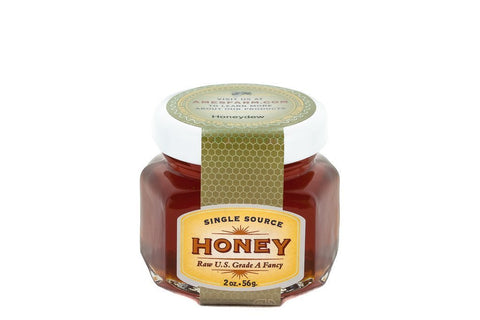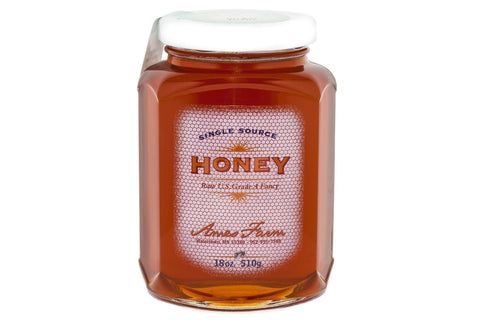


Spring Forest Honey
Honeydew honey also called Forest Honey in Europe is a unique type of honey that is made from the sugary excretion of certain insects, such as aphids and scale insects, rather than from flower nectar. In Minnesota, honeydew honey is most commonly produced from trees such oak, alder, birch, balsam fir and the white spruce.
This type of honey is typically produced in the late spring and again but less common in fall in Minnesota
One of the most striking characteristics of honeydew honey is its dark color, which ranges from light amber to brown . The flavor of is also distinct from that of traditional honey, with a richer, earthier malty taste.
Honeydew honey is highly prized in many parts of the world, particularly in the Middle East. In countries like Lebanon and Syria, honeydew honey is considered a delicacy and is often used in traditional dishes and as a natural sweetener. Some people believe that honeydew honey may have more health benefits than traditional honey due to its high mineral content.
Honeydew honey contains high levels of minerals like iron, zinc, potassium, and manganese. It also contains antioxidants, which can help to protect the body from damage caused by free radicals. Some studies have suggested that honeydew honey may be particularly effective at protecting against certain types of cancer, and may also have anti-inflammatory properties.
Despite its potential health benefits, honeydew honey remains a relatively obscure product in the United States.
I love the delicate flavors. Thanks!
This is the best honey. Ships quickly, and very well packed.
I like the light floral flavor of this honey. It goes great on hot biscuits.
Spring forest honey is really good. It matches the description from Ames farm. It is delicious and full of health benefits. I tasted it for the first time and amazed to learn how nature can bless us in different ways. It is a different class of honey that I shall be ordering again.
Never had this type of honey before. Was a little intimidated by it but after a few tastings I am quite enamored with it and will definitely be ordering more! Thank you Ames Farm!!
